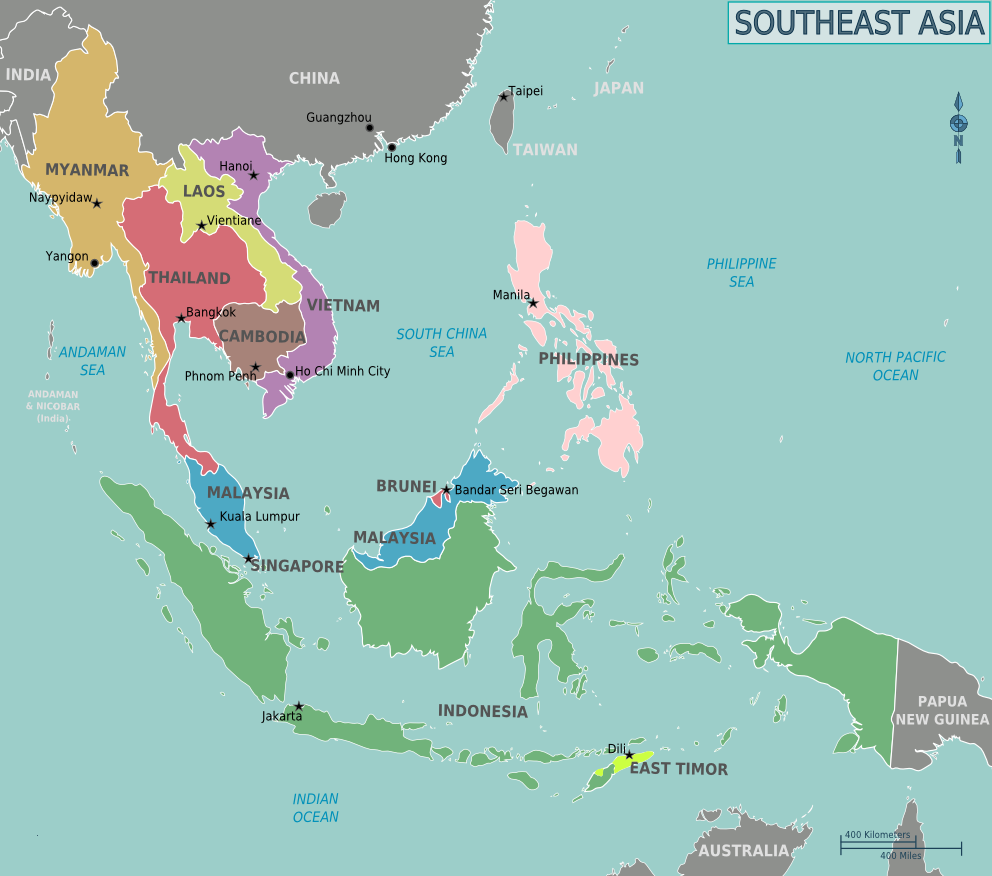 |
| Image source: Wikimedia commons |
Showing posts with label Asia. Show all posts
Showing posts with label Asia. Show all posts
November 12, 2013
Aung San Suu Kyi and Australia’s new relationship with Myanmar
August 8, 2013
Two cheers for democracy in Southeast Asia?: recent elections in Malaysia, the Philippines and Cambodia
 |
| Image source: Election Commission of Malaysia |
July 9, 2013
Segregated, stateless and at sea: Myanmar, the Rohingyas and Australia
 |
| Image source: US State Department |
Australia’s Minister for Foreign Affairs, Senator Bob Carr, will travel to Myanmar this week where he has stated he will raise the recent sectarian violence in Rakhine state, including the plight of the Muslim Rohingya minority, with the President and the Foreign Minister. He has previously flagged that he may seek to personally visit Rakhine to assess the situation as part of this trip.
February 13, 2013
A snapshot of Southeast Asia in 2013
 |
| Image source: Wikimedia Commons |
Both Malaysia and Cambodia will conduct national elections in 2013. In the case of Malaysia, where the election must be called by April, the upcoming poll has been characterised as the most competitive in the country’s history. This is despite ongoing concerns on the part of opposition parties and democracy activists about possible vote-rigging by the country’s governing coalition, the Barisan Nasional. Cambodia’s elections, scheduled for July, take place against the backdrop of rapid economic development, continued pursuit of closer economic and political relations with China and renewed allegations of human rights abuses by Hun Sen’s government.
November 21, 2012
Mongolia at a crossroads: opportunities for enhanced engagement?
 |
| Image source: Smartraveller |
This year marks the 40th anniversary of diplomatic relations between Australia and Mongolia. On 13 November 2012, the Australian National University hosted (in collaboration with partner institutions) the inaugural Mongolia Update conference. It followed the official visit to Australia by Lieutenant General Tserendejidiin Byambajav, Chief of the General Staff of Mongolian Armed Forces on 8–10 November 2012 as part of the 15th Annual Chiefs of Defence Conference in Sydney.
October 9, 2012
Myanmar update
 |
| Image source: Wikimedia commons |
September 25, 2012
The South China Sea disputes: some practical thinking from Australia
Growing hostility between China and the Philippines, the failure of ASEAN Foreign Ministers to agree on a joint statement at their July meeting in Phnom Penh, and anti-China protests on the streets of Hanoi have re-focused international attention on long-standing maritime and territorial disputes in the South China Sea over the last several months. While issues like North Korea’s nuclear program and the China–Taiwan dispute have tended to dominate discussions of regional security over the last decade, one prominent Australian foreign policy analyst has argued recently that ‘it is in the South China Sea that the components of Asia’s changing power dynamics are most concentrated and on display’.
 |
Image source: US Energy Information Administration
|
July 5, 2012
SBY’s visit – the bigger picture
At the second Indonesia-Australia Leaders’ Meeting in Darwin on 3 July, Prime Minister Julia Gillard and President Susilo Bambang Yudhoyono re-affirmed the two countries’ ‘comprehensive strategic partnership, based on a mutual commitment to each other’s progress, prosperity and security’. The
Joint Statement agreed by the two leaders highlights cooperation across a range of issues, including regional institutional architecture, trade, defence and maritime cooperation, policing, development assistance, and people-to-people links.
June 13, 2012
Burma's economy—the long road ahead
 |
| Image source: Wikimedia Commons |
August 26, 2010
Subscribe to:
Posts (Atom)


